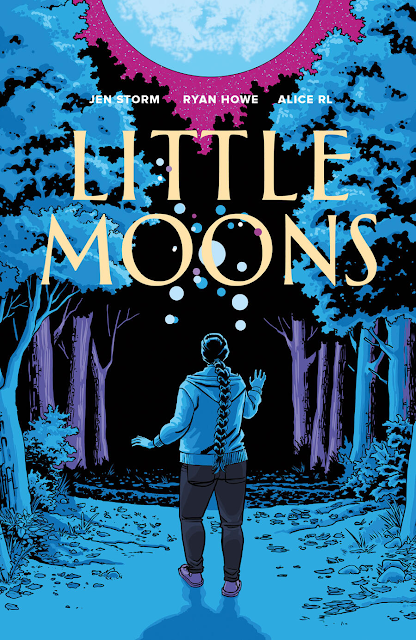February 20, 2024
Dear Colleagues,
Below I am sharing a letter that is being shared in Native networks today (Feb 20, 2024). It asks educators in Vermont to stop making space for the performance of appropriated and invented Abenaki rituals, music, dance, and art from these individuals:
Fred Wiseman, Vera Sheehan, Joseph and Jesse Bruchac, Rich Hulschuh, Lisa Brooks, Melody Mackin, Don Stevens, Brenda Gagne, Paul Pouliot, and Judy Dow.
I am pasting the contents of the letter below; beneath it you will find screen captures of the letter that show the letter is signed by Chief Rick O'Bomsawin, Abenakis of Odanak and Chief Michel R. Bernard, Abenakis of W8linak. If you need a pdf, let me know.
As this 2023 video shows, Chief O'Bomsawin invited the Vermont groups to meet with them to discuss concerns. The Feb 8 letter suggests to me that the Vermont groups chose to reject the invitation.
Debbie
February 8, 2024
Subject: Request for a meeting to discuss issues related to Vermont's self-proclaimed "abenaki" tribes
Kwaï,
We write to you as representatives of the Abenaki People of the Odanak First Nation and Wolinak First Nation. We are the First People of these lands.
We are writing to you, Vermont’s educators and keepers of knowledge, to raise our concerns about the teaching of false histories of our people, as well as the platforming of those who preach and profit by appropriating our heritage and history.
We have come through centuries of war, dispossession and removal from the lands that became the United States and Vermont. The Canadian-American border cut our traditional territory into two. We continued to travel, live and trade in our ancestral lands. Over the last twenty years, we have raised concerns about the proliferation of self-proclaimed ‘Abenaki’ groups in Vermont and New Hampshire. In 2011 we tried to voice our concern about Vermont's state recognition process which gave state authority to these groups, but we were excluded from that process.
We do not recognize any of those groups as Abenaki as they have never demonstrated that they have any Abenaki ancestry or heritage. In April of 2022 for the first time we were given the opportunity to share our history at the University of Vermont. At that event we also denounced these groups and explained the harm their appropriation of our heritage has caused us. As Odanak Councillor Jacques Watso put it, “they are erasing us by replacing us.”
We are not the only ones to call their claims into question. Vermont’s own Attorney General’s report thoroughly investigated these claims twenty years ago, as did the Bureau of Indian Affairs in 2007. Both found a lack of Abenaki ancestry or historic link to any North American Indian tribe. Recent peer-reviewed scholarship as well as investigations by Vermont Public, vtdigger, and the Aboriginal Peoples Television Network, all confirm that they are not Indigenous or Abenaki.
These self-proclaimed ‘tribes’ are instead part of a growing movement that anthropologist Circe Sturm calls ‘race-shifting’: non-Natives claiming indigenous ancestry with little or no basis for doing so. As Professor Kim TallBear made clear in a recent presentation at the University of Vermont, race-shifters carry out a final act of colonization by replacing actual Native People with the voices and the bodies of the invader. “Self indigenization,” said TallBear, “is an act of genocidal elimination.”
If it is your intention to work with those who have preserved the culture and language of the Abenaki across 400 years of colonization, we are those people.
We were never in hiding, or the targets of Vermont's eugenics programs. As Vermont Public and vtdigger reported, this is mythology, not history. UVM historian David Massell makes this plain. “No reputable scholar has seen or shared any credible historical evidence to support the theory (now a widely-embraced myth) that Vermont's eugenics campaign had any interest in, or in any way sought to target, the Abenaki,” Massell told vtdigger. “None.”
We ask that you teach actual, evidence-based history and consider the sources in your curriculum. We ask that you no longer make space for the performance of appropriated and invented Abenaki rituals, music, dance and art. We ask that you stop platforming and elevating those who claim to represent us. This includes Fred Wiseman, Vera Sheehan, Joseph and Jesse Bruchac, Rich Holschuh, Lisa Brooks, Melody Mackin, Don Stevens, Brenda Gagne, Paul Pouliot and Judy Dow. None of these people have Abenaki ancestors. None speak from an indigenous perspective. None are our kin.
We do not seek land or resources in Vermont, only recognition of who we are. We request that Vermont’s educators learn and honor the true history of the Abenaki people.
We request a timely opportunity to discuss these concerns with you and in the coming weeks we will send an invitation to a meeting between Vermont education leaders, representatives of the Abenaki People, and allies from the Wabanaki Confederacy for further learning.
To participate in that meeting, please contact Daniel G. Nolett, Executive director at the Abenaki Council of Odanak at 450-568-2810 or dgnolett@caodanak.com.
We request that you share this letter widely with your colleagues, faculty, staff, board members, etc., depending on your organizational context.
In Peace and Friendship,
Rick O’Bomsawin, Chief, Abenaki of Odanak
Michel R. Bernard, Chief, Abenaki of W8linak





















































